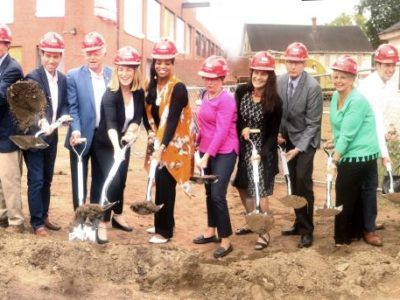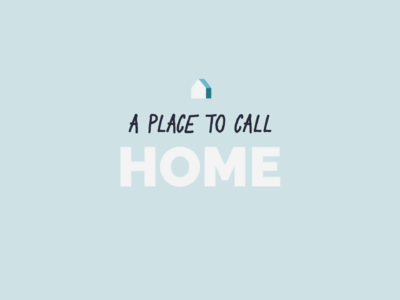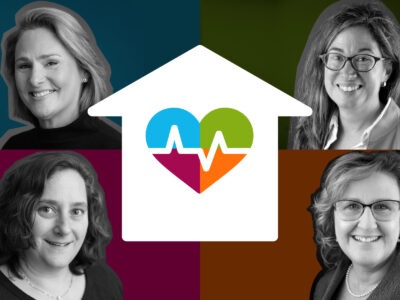- 13 Built for Zero communities have achieved measurable reductions in veteran or chronic homelessness since October, known as shifts
- These communities include cities and counties in Missouri, North Carolina, and Virginia
- Coordinated, data-driven systems for responding to homelessness is imperative, especially during a pandemic
It is no secret that the coronavirus pandemic is testing the capacity of our homeless response system. And with a looming eviction crisis that could leave millions more homeless, making progress on ending homelessness seems all the more challenging, and critical.
At Community Solutions, we know that homelessness is solvable because communities are proving it every day.
Since October 2019, 13 Built for Zero communities have achieved measurable shifts in reducing veteran or chronic homelessness.
A shift refers to a measurable reduction in homelessness, which trends below the community’s baseline, or median, for six months in a row. This milestone happens after achieving a quality by-name list and before reaching functional zero, which means the number of people from a specific population experiencing homelessness is less than the community can house in a month.
- Bakersfield/Kern Co., CA – chronic
- Burlington/Chittenden Co., VT – chronic & veteran
- Lynchburg/Central Virginia – chronic & veteran
- Charlotte-Mecklenburg, NC – veteran
- Columbia-Boone County, MO – veteran
- Cook Co., IL – veteran
- Fairfax Co., VA – chronic
- Fresno/Madera Co., CA – veteran
- Gulfport, MS – chronic & youth
- Lake Co., IL – chronic
- Madison/Dane Co., WI – chronic
- Springfield, MA – veteran
- Tallahassee/Leon Co., FL – veteran
How did these communities make progress when faced with so many obstacles?
In the midst of this pandemic, which has disproportionately impacted people experiencing homelessness and the organizations that serve them, it may be hard to imagine any community reducing homelessness for a specific population. Especially in light of economic uncertainty and an impending eviction crisis, making strides to make homelessness rare and brief would seem impossible.
The 13 communities that reduced the number of people experiencing homelessness were steadfast in the face of these challenges. They committed to working together and making lasting changes in their homeless response system that could withstand a pandemic. Some of these improvements include: building stronger partnerships with local public health departments; developing closer relationships with local governments; engaging with their emergency management agencies; and creating stronger ties with local health care systems – just to name a few.
While each community is unique and faces different challenges, our Built for Zero communities have a few things in common.
- They use an integrated, command center team that brings together key agencies to work together every week toward a shared definition of zero.
- They focus on community-level measurement, by measuring success by the total number of people experiencing homelessness, not by program outcomes.
- They have comprehensive, real-time, by-name data and know everyone experiencing homelessness by name, in real-time.
- They make strategic, data-driven housing investments to secure and target the housing resources for the greatest possible reductions in homelessness.
Central Virginia/Lynchburg, Virginia
In August, Lynchburg, Virginia, reached functional zero for veteran homelessness. As they approached this milestone during the spring of 2020, when the coronavirus pandemic was in full swing, their confidence may have waived, but their commitment never did.
The Lynchburg Built for Zero team achieved functional zero for veteran homelessness by ensuring they had quality data on each veteran experiencing homelessness in their community and by creating partnerships across the community. Working together, they set ambitious goals – target dates to move veterans into housing and the number of veterans they wanted to house that month – and continued to make progress toward those goals. This community is also nearing their threshold for ending chronic homelessness and expect to be there by the end of the year.
Columbia/Boone County, Missouri
The Built for Zero team in Columbia/Boone County, Missouri, is one community that made significant strides to reduce veteran homelessness over the past six months. They did this by focusing on their integrated, command center team.
Kelli Kemnam, Affordable Housing Consultant with the Missouri Department of Mental Health, Housing Unit, recently shared that her community has been making progress towards ending veteran homelessness by focusing on case conferencing (which is when all of the key actors come together to discuss those on the by-name list).
They also targeted their efforts and resources by:
- Making sure each veteran had a housing plan
- Following up on the housing plan
- Ensuring their data was correct and that their list reflected what was going on their community
Charlotte/Mecklenburg County, North Carolina
Charlotte/Mecklenburg County, North Carolina also achieved a major milestone during this perilous time. In August, they announced they reduced the number of veterans actively experiencing homelessness in their community from 315 to 213 in 2019 — more than 30 percent. As a Built for Zero community, they did this by creating an integrated, command center team and by improving their data collection.
This dedicated community has not only maintained this reduction during the coronavirus pandemic; they are poised to reduce the number of veterans experiencing homelessness by another 30% this year! The Charlotte/Mecklenburg County is proving that homelessness can be solved – with data, teamwork, and perseverance.
Against All Odds
These communities have proved that homelessness can be solved – and against all odds. Through our Built for Zero initiative, we will continue to work with communities that are committed to reimagining their homeless response systems so homelessness is rare and brief, when it occurs.




